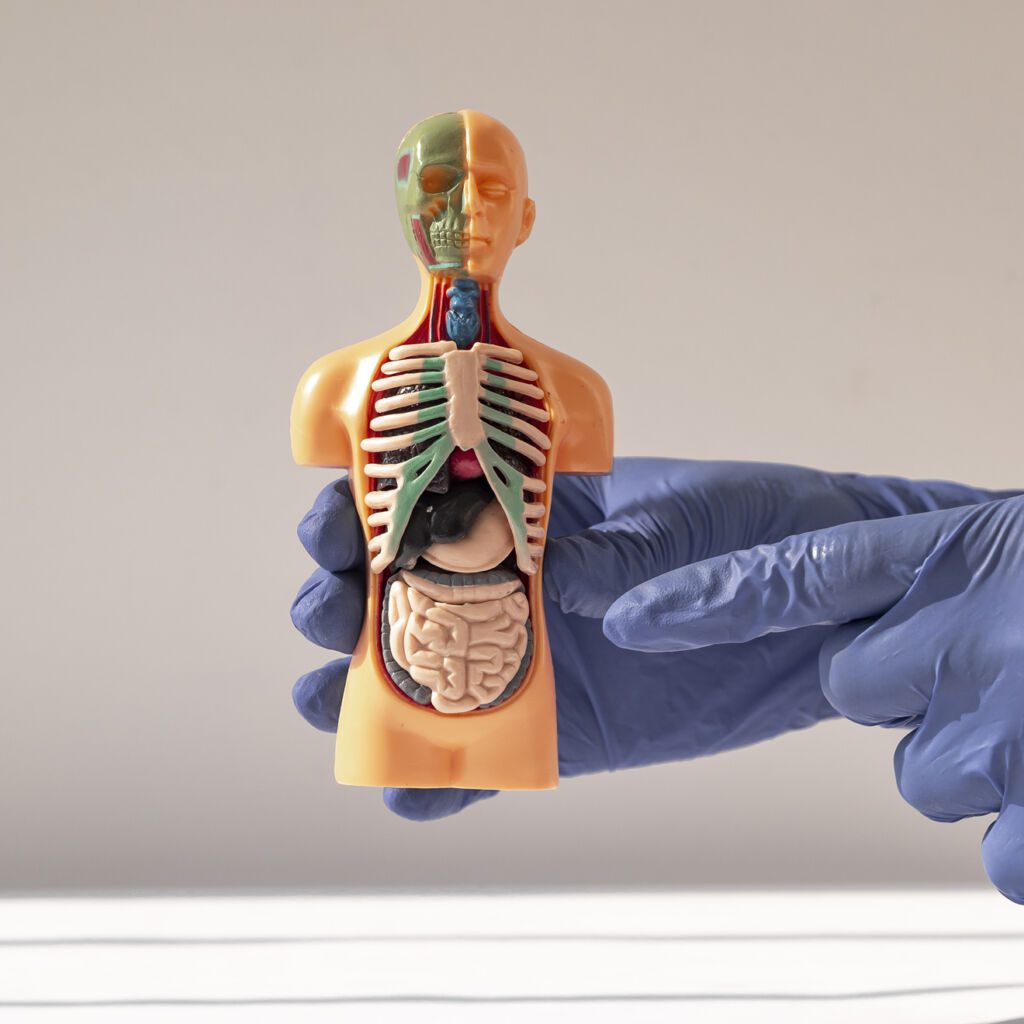As a major surgical speciality, visceral surgery mainly treats pathologies affecting the abdominal and pelvic organs.
In order to give our patients every chance, our team of visceral surgeons will accompany you personally in all your health problems.
In collaboration with the entire surgical team, our surgeons perform operations on the organs of the digestive tract, the urogenital tract and the secretory organs. They also perform operations on the abdominal wall, such as hernia repair, and obesity surgery.

The Visceral Surgery centre includes specialities specific to the digestive organs and the abdominal-pelvic and endocrine organs.
Outpatient, technical and imaging services are available 24/7.
The Visceral Surgery Centre is dedicated to Endoscopic surgery (appendectomy, hernia surgery for all types of intestinal obstruction, gastric band surgery, bile duct exploration, peptic ulcer surgery, etc.), laser surgery (removal of anal haemorrhoids, etc.), gastrointestinal surgery, liver, gallbladder and pancreas surgery, emergency surgery.
You ask, our teams answer.
F.A.Q
The appendix is a small pouch attached to the caecum, which is a curved pouch located in the lower right part of the abdomen that connects to the large intestine.
Appendicitis (treated within our visceral surgery centre) is an inflammation of the appendix that can cause pain and nausea. The most common symptoms of appendicitis are abdominal pain, nausea, vomiting and loss of appetite.
The appendix may need to be removed if it is inflamed or infected, or if it is causing a blockage in the bowel. An operation is usually necessary to remove an inflamed or infected appendix.
Appendectomy (removal of the appendix) is carried out by surgeons who specialise in minimally invasive surgery (laparoscopic surgery).
Gastric banding, also known as laparoscopic gastric banding or gastric banding (supported within our Visceral Surgery Centre), is a surgical weight loss procedure that consists of placing an inflatable ring around the upper part of the stomach.
The main aim of the operation is to reduce the size of the stomach so that you feel full after eating a small amount. This will allow you to eat less and lose weight over time.
Gastric banding is performed through laparoscopic surgery. A small incision is made in your abdomen and a camera called a laparoscope is passed through it. The camera sends images to a TV-like monitor that allows the surgeon to see inside your body and operate precisely while using other instruments to do their job through small incisions in your skin.
A small tube may be placed just under the skin of your abdomen (abdominal pouch), or another type of reservoir may be placed under the skin in the upper part of your stomach (gastric sleeve).
Liver surgery is a surgical procedure to remove part of the liver. The liver is a large organ with many functions. The most common reasons for this type of surgery are cancer and cirrhosis, but it can also be performed for other types of disease.
Liver surgery may be necessary if the liver is damaged or not working properly. The surgeon will remove damaged tissue and remove or repair blood vessels or ducts in the affected organ. Liver surgery can also be used to remove tumours that develop on or in the liver.
It is often used to treat cancerous tumours that have spread throughout the body and cannot be removed with conventional treatments such as chemotherapy or radiotherapy. This type of surgery removes parts of the tumour while leaving as much healthy tissue as possible, so that the body can continue to function properly after treatment.
Hernia (treated within our visceral surgery centre) is a condition in which part of the stomach protrudes through an opening in the diaphragm or abdominal muscle wall. This can cause pain, discomfort and even serious complications if not treated in time. The most common symptom of hernia is abdominal swelling due to food stuck in the hernia site.
TYPES OF HERNIA
There are two main types of hernia: incisional and para-esophageal.
- Incisional hernias occur when part of the stomach protrudes through an incision (cut) made during surgery on that area.
- Para-esophageal hernias occur when part of the stomach protrudes through a weakened area between two muscles that make up the diaphragm.
Haemorrhoids are swollen blood vessels in the anal canal that can cause pain and itching. Haemorrhoid surgery (management within our visceral surgery pole) is performed to remove them.
Haemorrhoids may be removed for a number of reasons:
- Painful or itching haemorrhoids that do not disappear with medication.
- Haemorrhoids that bleed when touched or moved.
- Haemorrhoids that bleed and do not heal after several months of treatment with creams, ointments and other medicines.
- Haemorrhoids symptoms include painless bumps in the anal area, itching and irritation of the rectum and anus, and bleeding with bowel movements. Haemorrhoids are usually not serious unless they become very large or inflamed, which can cause pain and bleeding.



